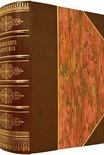Gluck, Diana Souhami [good novels to read in english txt] 📗

- Author: Diana Souhami
Book online «Gluck, Diana Souhami [good novels to read in english txt] 📗». Author Diana Souhami
In the 1920s she wrote opinion pieces in the Express, Sunday Express and Daily Sketch. Her writing was free-ranging, whimsical, sharp and with a feminist bite. She had been a suffragist, was an advocate of equal pay and a founder member of the PEN club. She wrote about the myths of female passivity and male superiority and extolled the virtues of spinsterhood and late love: ‘There are other and better bouquets than those we get at our first dances …’2 She considered the marriage promises ‘wild and improbable’, and provoked a heated correspondence in the Sunday Express (October 1925) by advocating that ‘the wisest and most eloquent women should be allowed to occupy the pulpits’. She wrote of the iniquities of violence against women, maternal mortality, snobbish boarding schools and censorship, and warmly about all things Lancastrian and the delights for women of short hair, sensible clothes and driving their own cars. She was romantic about talent and love: ‘… novel writing is like marriage – you should never do it unless you feel that otherwise you will be unable to go on living at all …’3; and dismissive of domestic calm: ‘the secret of a joyful life is to live dangerously,’ she wrote, quoting Nietzsche, in the Sunday Express, 19 July 1927.
In her whimsical words she tweaked at the Establishment’s tail. ‘Adam was rather a poor creature’ she wrote in the Evening Standard, 25 April 1929, in response to an MP who lamented that women’s independence made men lose their manners, ‘but one likes to believe that his sons have steadily grown out of his sneaky way of trying to put the blame on somebody else …’ And in a piece ostensibly urging economic independence for partners in marriage she mischievously remarked:
I believe there is something divine in marriage, but I believe also that there is something divine in many other human relationships. David and Jonathan appeal for no legal assurance that one shall support the other or be responsible for his debts, as long as they both shall live, even though their friendship breaks. Why should Edwin and Angelina?4
She was for a time the Evening Standard’s drama critic and the only woman member of what was known as the ‘Critics Circle’. In September 1931 the paper appointed her as their book critic:
In offering Miss Shackleton the control of this important feature we have been influenced by her reputation as one of the best-known women journalists, by her high standing in the literary world, and by the wide popularity of the many articles she has contributed to this journal in the past.
Three months later, for some unexplained reason, Edith left and went to Greece and the job went to J. B. Priestley.
Nora was both a journalist and editor. She started as a music and drama critic, then became editor of the women’s pages of The Daily Herald, editor of The Queen and from 1930 to 1953 editor of The Lady. Edith did a weekly book review page for The Lady and a humorous, informative and extremely popular opinion page ‘With Prejudice’, under the name of ‘Clio’. Nora took into The Lady’s stable the fashion writer Alison Settle (who also moved to Steyning in the 1930s and was a close friend of the sisters), Stella Gibbons, the author of Cold Comfort Farm, and the writer and book reviewer, Elizabeth Coxhead.
The Heald sisters had lived together harmoniously for most of their lives. Mother, to whom they were devoted, lived with them until her death shortly before the move to Chantry in 1934. She was in later years a dumpy figure rather like Queen Victoria and had a reputation for making the best coffee in London. Before moving to Steyning they owned a fine Regency house at 24 St Petersburg Place, near Hyde Park, with a red Riley in the garage and a flat for the chauffeur at the top of the house. (Edith was an erratic driver, known to go to sleep at the wheel.) They earned their standard of living through ability and hard work. They were not, like Gluck, born into money. Their family, originally from Larne in County Antrim, Ireland, moved to Accrington in Lancashire. ‘… my Lancashire great-grandmother smoked a pipe among her men folk and joined in their discussion on that startling fellow Tyndall and the possible effect of the newly projected Atlantic cable …’ Edith wrote in the Sunday Express, 19 July 1927. Throughout her life she kept up the Irish connection. She had a cottage in Rosapenna, in Donegal, and she and Gluck went on walking holidays there. In later years Gluck painted landscapes on these Irish holidays.
There were two brothers, Harry, who became an engineer, and Ivan who was killed in the 1914–18 war. Each year after he was killed, until the end of her own life some sixty years later, Edith put an In Memoriam tribute in The Times. He too was a journalist; he wrote humorous, satirical pieces for the Manchester Guardian. An anthology of his work, Ivan Heald: Hero and Humorist, was published when he died in 19175 a collection of lighthearted, youthful pieces on such topics as Americans in London, philately, an Anarchist meeting in Newcastle, or ‘How to Buy a Straw Hat’. In the war he was commended for conspicuous bravery and devotion to duty. He sent his mother and sisters reassuring letters from the graveyards of Alexandria and Gallipoli:
When we arrived we found the trenches strewn with dead Turks and bits of dead Turks. It is not really half so ghastly as you would think, or maybe it is that we





Comments (0)